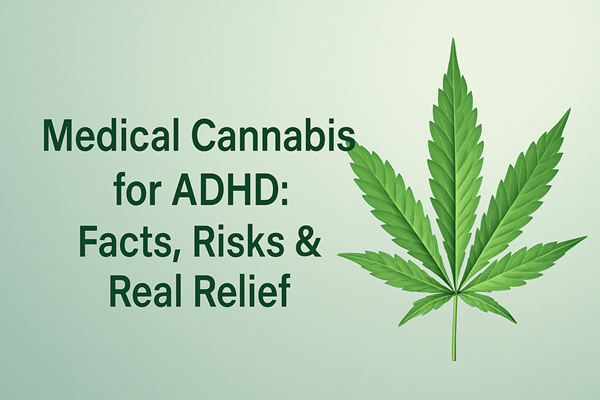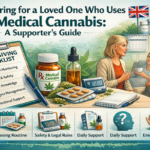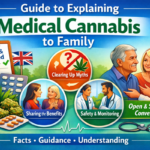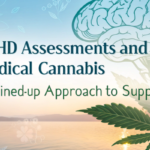Medical Cannabis and ADHD: Relief, Risk, and the Reality Behind the Hype

ADHD is a neurological condition that can make focus, impulse control, and emotional regulation feel like a constant uphill sprint. As traditional treatments, like stimulants (Adderall, Ritalin) or non-stimulants (Strattera, Intuniv), come with side effects and mixed results, many adults are turning to medical cannabis as a potential alternative or adjunct therapy.
But here’s the uncomfortable truth: the science is messy, the evidence is thin, and self-medication is risky. Let’s unpack what’s actually known and what’s pure smoke.
The neurological angle: How cannabis interacts with ADHD brains
ADHD involves dysregulation in the dopamine system, the neurotransmitter responsible for reward, motivation, and focus. Cannabis also influences dopamine, but not in the same way stimulants do. THC, the psychoactive component, temporarily spikes dopamine levels, leading to short-term euphoria, creativity, or hyperfocus.
The problem? That spike doesn’t last. Once THC wears off, dopamine dips below baseline, which can worsen inattention and mood swings over time.
CBD, on the other hand, doesn’t act on dopamine directly. It modulates serotonin and the endocannabinoid system, potentially reducing anxiety, irritability, and insomnia that often accompany ADHD. That’s why some users report feeling “calmer” or “more in control” after certain strains or formulations.
What the research actually says (not what Reddit says)
Let’s ditch the anecdotal “weed helps me focus” stories for a minute.
Here’s what current evidence shows:
- Limited clinical trials: Most studies are small, short-term, or rely on self-reported data.
- Mixed results: Some adults with ADHD report reduced impulsivity and better sleep, while others experience worsened memory, motivation, and task initiation.
- Youth risk: Cannabis use before age 25 can disrupt brain development, worsen executive function, and increase dependency risks.
- THC vs. CBD balance matters: High-THC strains may worsen anxiety and distractibility; balanced or CBD-dominant formulations appear more promising.
In plain English: cannabis isn’t a silver bullet, but it’s not snake oil either. It’s a tool, one that must be used with precision, not as a blanket cure.
Real-world use: How ADHD patients are integrating cannabis
Some medical cannabis patients use microdosing strategies, low THC doses throughout the day, to stay calm without cognitive impairment. Others use evening dosing (CBD or indica strains) to aid sleep and offset stimulant-induced insomnia.
The most responsible patients work with clinicians to tailor strain, dosage, and timing. Without guidance, it’s easy to slide into dopamine chasing, using weed to escape, not enhance, daily function. Working with a clinician usually starts with a full spectrum ADHD test to understand your symptom profile and treatment history, ensuring any cannabis-based approach is personalised and safe.
Risks you can’t ignore
- Tolerance and dependency: Regular THC exposure blunts natural dopamine signalling, leading to needing more to feel “normal”.
- Cognitive fog: Chronic use can reduce working memory and executive function, the very skills ADHD sufferers already struggle with.
- Emotional blunting: Some users experience flat affect or emotional numbness after long-term use.
- Legal and workplace complications: Even with a prescription, THC can flag drug tests and complicate employment or travel.
If you’re serious about exploring medical cannabis for ADHD, it’s not about “getting high”; it’s about harm reduction and intentional usage.
Bottom line: Cannabis can help, but not without strategy
If traditional meds make you feel robotic or anxious, medical cannabis might offer relief, but only if you treat it like medicine, not an escape.
The smart play is to start low, go slow, and track your results.
Don’t fall for the “all natural = safe” myth. Whether it’s Adderall or a vaporiser, everything that changes brain chemistry has trade-offs.
TL;DR
- Cannabis may help ADHD symptoms like anxiety, impulsivity, and sleep, but evidence is limited.
- THC-heavy strains can worsen focus; CBD-dominant or balanced strains are safer.
- Self-medicating without medical oversight often leads to tolerance or dependency.
- Work with a clinician who understands both ADHD and cannabinoid medicine.
Cannabis isn’t the cure for ADHD. But with the right guidance, it might be part of your toolkit.


